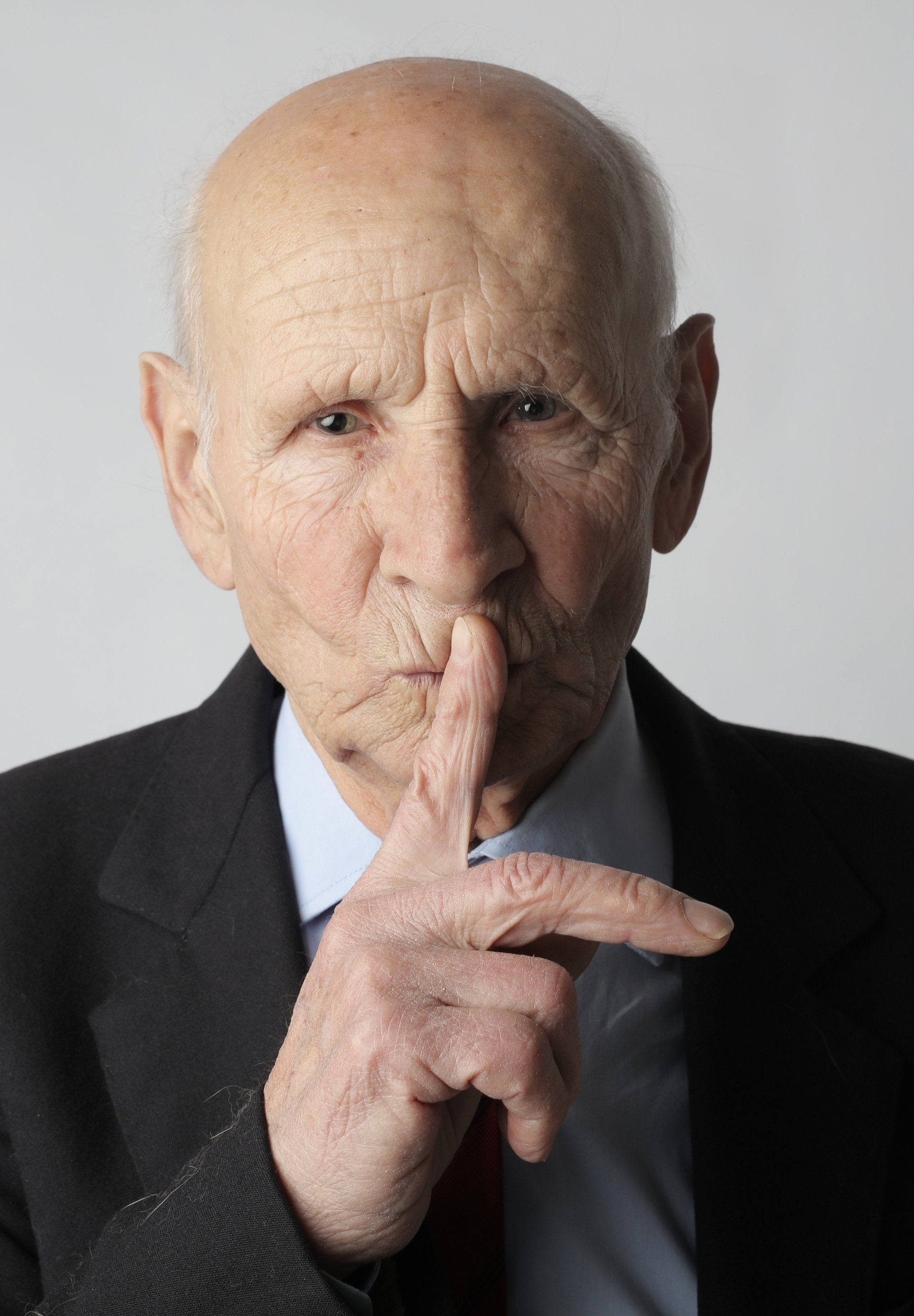Right to Silence in Workplace Investigations?

Background
The case of Electricity Supply Board -v- Kieran Sharkey [2024] IEHC 65 examines whether an employee has a right to silence in the context of workplace investigations. The Electricity Supply Board (ESB) (the Plaintiff) brought a case against Mr Sharkey (the Defendant) alleging that his failure to answer certain questions, in the context of a workplace investigations that was also subject to parallel criminal proceedings, amounted to a repudiation of his contract of employment or, in the alternative, that the ESB was entitled to treat his contract of employment as having been terminated by him. In the alternative, the ESB sought an Order compelling Mr Sharkey to disclose certain information to it concerning that same workplace investigation subject matter.
It was the position of the Defendant that he had a constitutional right to silence and a privilege against self- incrimination.
In summary, ESB alleged that Mr Sharkey had or may have received payments of cash or otherwise from certain companies to instal electricity meters. ESB had separately reported these allegations to An Garda Siochana, who had carried out their own searches and investigation into this matter, involving numerous ESB employees.
ESB sought certain clarifications from Mr Sharkey, advising him that a failure to provide the requisite answers could result in the ESB construing his failure to provide those answers, to constitute a breach of contract and possibly an intention to terminate that contract of employment.
Solicitors for Mr Sharkey queried whether Mr Sharkey’s constitutionally enshrined right to silence in the context of a criminal investigation could not be overridden by any contractual obligation Mr Sharkey had on foot of his contract of employment to ESB.
Legislation and Case Law
ESB accepted that the Defendant was the subject of a criminal investigation. Moreover, it accepted that it may be obliged to provide An Garda Siochana with any information provided to it by the Defendant by reason of section 19 of the Criminal Justice Act 2011, which provides:
(1) A person shall be guilty of an offence if he or she has information which he or she knows or believes might be of material assistance in—
(a) preventing the commission by any other person of a relevant offence, or
(b) securing the apprehension, prosecution or conviction of any other person for a relevant offence,
and fails without reasonable excuse to disclose that information as soon as it is practicable to do so to a member of the Garda Síochána.
There was an extensive analysis of the right to silence in general within the Irish constitution and case law as well as the right of an individual not to incriminate themselves.
The Court went on to consider whether constitutional were relevant within an employment context.
In Glover v BLN [1973] IR 388, the Supreme Court found that the constitutional guarantee of fair procedures found in Article 40.3 of the Constitution applied, at least in that case, in the employment context. Walsh J stated (at p. 425)
“This Court in In re Haughey held that that provision of the Constitution was a guarantee of fair procedures. It is not, in my opinion, necessary to discuss the full effect of this Article in the realm of private law or indeed of public law. It is sufficient to say that public policy and the dictates of constitutional justice require that statutes, regulations or agreements setting up machinery for taking decisions which may affect rights or impose liabilities should be construed as providing for fair procedures.”
In a number of cases, the courts have treated the right to silence as an aspect of the fair procedures which must be afforded in the employment context, albeit the courts’ observations in these cases are clearly obiter. In Flynn v An Post [1987] IR 68, the Supreme Court found that an employee’s suspension had become invalid by reason of the passage of time. He had been suspended and sought a full hearing of the charge of misconduct alleged against him, notwithstanding that he faced criminal proceedings arising out of the same circumstances that had given rise to his suspension. Henchy J (in a dissenting judgment) stated that there was no hard and fast rule as to whether criminal or civil proceedings arising from the same alleged misconduct should go first and said (at p. 77) that “if the employee waives his rights as defendant-to-be in the criminal proceedings (including his right to silence) and opts to have the domestic proceedings heard first, his claim in that respect will be greatly enhanced by that waiver.”
It appears, therefore, that Henchy J proceeded on the assumption that there was a right to silence, in some form, capable of being exercised, or indeed, waived in the employment proceedings. McCarthy J, for the majority, was more circumspect (at p. 82):
“In the High Court it was held that the plaintiff's right to silence might be lost or he might be otherwise prejudiced in the criminal trial if the investigation had proceeded. Without expressing any view as to the nature of an alleged right to silence, in my judgment, if an accused in a criminal proceeding wishes to embark upon a course which may damage him in the manner suggested, it is no function of his employer, who is not the prosecutor (although the confusion of the two is understandable because of the D.P.P.'s choice of solicitor) to protect him from the consequences of such a course.”
He did, however, suggest that where there was acquiescence in delaying disciplinary proceedings, a court should, in such circumstances, lean towards “avoiding prejudice”.
In Mooney v An Post [1998] 4 IR 288, the entitlement of an employee to refuse to answer questions was directly engaged. The plaintiff had been the subject of disciplinary proceedings and criminal proceedings arising out of the same circumstances. In that case, no issue had been raised about the disciplinary proceedings being delayed pending the determination of the criminal proceedings. He was acquitted on the criminal charge and claimed a breach of fair procedures in the disciplinary proceedings which followed. The Supreme Court (Barrington J) commented that the employer was entitled to a candid response from the plaintiff when misgivings were put to him and rejected his claim that there had been a breach of fair procedures. Of relevance for present purposes, however, was Barrington J’s observation (at p. 300) that it “was of course the Plaintiff’s right to remain silent while the criminal proceedings were hanging over him.”
As with Flynn and Mooney, in H v Governor of a Prison and the Irish Prison Service [2023] IEHC 262, the High Court (Barr J) also seems to have proceeded on the assumption that an employee might be entitled to rely on the privilege against self-incrimination in disciplinary proceedings (see para. 60).
In Carroll v Law Society (No. 2) [2003] 1 IR 284, the High Court (McGuinness J) was asked to restrain a disciplinary hearing by the Law Society in circumstances where, it was argued, that the procedure proposed was unfair. One of the matters relied on by the applicant was that, although it was accepted that he could invoke the privilege against self-incrimination before the disciplinary committee, doing so might undermine his ability to defend himself in the disciplinary proceedings. McGuinness J identified this as a legitimate concern. Having referred to Rock and Heaney, she observed:
“These dicta emphasise the importance of the privilege and this, indeed, is acknowledged by the respondent in its submission that the applicant has the right to remain silent. However, the difficulty that arises in such a situation is not so much the question of the applicant’s right to silence as the question of the practical results of his either remaining silent or answering the questions put to him. If he is to deal properly with the allegations made against him at the inquiry it is probably in his interest to answer as fully as possible any question put to him. Silence may damage his case at the inquiry. On the other hand he understandably is concerned that information or evidence given by him in the context of the inquiry might later be used by the respondent in mounting a prosecution against him.”
Decision
The Plaintiff argued that the Defendant’s reliance on the privilege against self-incrimination was misconceived that the case law established that there was no entitlement to silence in the employment context (see Mooney and Kelly v Minister for Agriculture [2021] 2 IR 624, 696). ESB pointed out that the consequences for the Defendant if he refused to answer the questions put to him were grounded in private law, i.e. his contract of employment will be repudiated. Insofar as Mr Sharkey invoked his right to silence, ESB argued that it was premature for him to do so. It contended that the appropriate course was for him to invoke that right in any criminal trial in which it sought to rely on his answers to ESB’s questions.
The Defendant emphasised that he was arguing for a very limited form of protection. In particular, he did not contend that there was any privilege against self-incrimination in the context of disciplinary proceedings. The Defendant acknowledged that an employee cannot refuse to answer an employer’s question on the basis that the answer may tend to expose that employee to sanction. Rather he argued that his privilege against self-incrimination in the context of the criminal investigation entitled him, for the time being, to refuse to answer his employer’s questions. Any such entitlement would come to an end as soon as the criminal process also came to an end. He rejected the Plaintiff’s reliance on case law regarding the right to silence in the context of the employment relationship as being irrelevant, since the cases relied on do not concern situations where there was a concurrent criminal investigation.
The High Court concluded that the Defendant was entitled to refuse to comply with the directions issued to him by ESB on foot of their investigation process into the matters complained of, for now. The High Court went on to clarify that the entitlement to refuse to answer such questions would cease as soon as the criminal investigation into the subject matter came to an end or, in the alternative, when ESB could establish that it was in its interests in insisting on the performance by the Defendant of his contractual obligations or if the Plaintiff could establish that it was in its interests in insisting on the performance of the Defendant of his contractual obligations.
However, the key point made was that the entitlement to the employee’s right to silence would cease as soon as the criminal investigation into the relevant subject matter, came to an end.
Takeaway
The takeaway for employees is that any right to silence in the context of a workplace investigation and potential disciplinary process, may only arise in very limited circumstances. Those circumstances may arise whereby the subject matter under a workplace investigation is subject to parallel criminal proceedings.
The takeaway for employers is that an employee will not ordinarily have a right to silence in the context of a workplace investigation unless it can be shown that the answers provided may breach an employee’s right to avoid self-incrimination, particularly in the context of extraneous criminal proceedings.

Our Firm
Contact Us
For a preliminary assessment of your legal matter, please complete the form below. We will be in contact to advise of your potential options and schedule a consultation.
Thank you for contacting Crushell & Co. We will be in contact as soon as possible. If your matter is urgent, please call or email the office directly, to speak to a solicitor or schedule an appointment.
Please see our 'Terms of Service' for details of our engagement and data protocols.
Thank you for contacting Crushell & Co. We appear to be having difficulty processing your query. If your matter is urgent, please call or email the office directly, to speak to a solicitor or schedule an appointment.
About Us
Find Us
Legal Notice
*In contentious business, a solicitor may not calculate fees or other charges as a percentage or proportion of any award or settlement.






